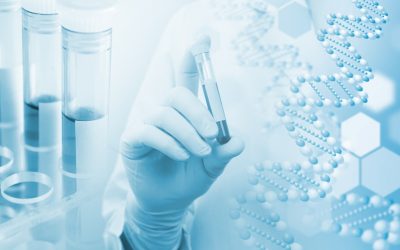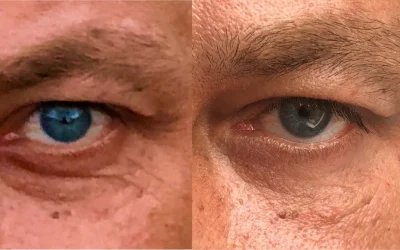Samsung Fast Company VP Jaeun Jung Talks Matter

Samsung Fast Company VP Jaeun Jung recently shared her vision for what a smart home will look like in 2023, and one of the key technologies that she sees as enabling this is Matter.
Matter is a new open platform that aims to connect all kinds of devices together into a single app, and Samsung has already become one of the first companies to become certified. Currently, SmartThings hubs and the Android app support Matter, but the company hasn’t rolled out software for SmartThings dongles or hubs built into TVs and Family Hub refrigerators. Here we will discuss every point of interview fastcompany vp jaeyeon galaxy smartthings.
What is Matter?
Matter is everything that has mass and takes up space. It is the stuff that makes up our world, from a pen and pencil to a glass of water and even a dog or a human being.
Matter can be broken down into three main forms: solids, liquids and gases. Each of these forms has different properties and can be measured in terms of density, solubility, conductivity, magnetic properties, and more.
The tiniest particles in the universe are atoms, and these atomic building blocks are what make up matter. These atoms are made up of protons, neutrons and electrons.
Atoms can join together to form molecules, which are larger units of matter. There are over 100 different kinds of atoms, and each of these represents a unique chemical element.
There are also many types of matter that don’t fit into the traditional categories, such as plasmas and foams, which are ionized gases at high temperatures. And there’s even “dark matter,” which can’t be seen with the naked eye, but is important for understanding gravity and other aspects of the physical world.
Despite its complexity, however, the concept of matter has an important place in modern science. Normally, it refers to atoms and any other matter composed of interacting subatomic particles, such as quarks or leptons.
But there’s a lot more to matter than just atoms, and the concept is complicated by quantum mechanics. These theories say that elementary particles behave like tiny balls or waves, depending on their energy state.
What’s more, matter can exist in two states at once. This is possible if pressure changes the way that matter moves.
This isn’t always the case, though. Certain matters vary frequently, but can only occur in two states and require both human and technical help to move from one stage to the next.
That’s why Samsung has been working hard to get Matter up and running as a smart home protocol. It’s a move that will make it much easier for consumers to find and purchase devices that are compatible with Matter, as well as making it far more likely that devices will be able to work together in the future.
Why is Matter important to Samsung?
Samsung is one of the world’s leading electronics manufacturers, producing an extensive line of products, including smartphones, televisions, computer processors, semiconductors, memory chips and integrated systems. It also has a range of green-energy solutions.
Samsung’s products are a part of everyday life in more than 200 countries. They are designed to connect people, make their lives simpler and create a positive impact on the environment.
The company’s flagship technology is SmartThings, a cloud-based platform for connected devices and smart home control. It supports thousands of devices and has a large number of partners across multiple industries.
Its open technology allows consumers to quickly and easily build automations and control facets of their smart homes through its smart products or via the SmartThings app. With millions of users already accessing SmartThings to control and create automations, the company is committed to bringing simple, trusted smart functionality to drive the future of IoT.
Today, Samsung continues to lead the smart home industry, introducing a range of new devices and features that will enable consumers to seamlessly connect their smart products, control them from a single app, and build automations. These include a selection of 2022 Samsung Smart TVs, Smart Monitors and Family Hub refrigerators that will support Matter Controller functionality, and the update to the SmartThings Android app.
The SmartThings app now includes easy discovery of Matter-compatible devices, meaning consumers don’t have to go through the process of adding each device manually. It also gives them the option of incorporating their Matter-compatible devices to both Samsung’s ecosystem and Google’s ecosystem at once.
This multi-admin feature is a big step toward the goal of creating an honest-to-goodness Matter standard for the smart home. This is a big win for Matter because it will finally remove the current unintuitive barrier between SmartThings and Google Home that has been there since the start.
Moreover, as it continues to work closely with other OEMs to develop Matter-compatible devices, Samsung’s SmartThings app and SmartThings hub software are the best-equipped home base applications for integrating with Matter-compatible devices. Its software has the most flexible number of protocols in the market, making it easier to connect with and control a broad array of devices.
What are the key features of Matter?
Matter is the physical substance that surrounds us every day. It has mass and occupies space (it takes up volume).
The material particles that make up matter include the electron, proton and neutron. These particles combine to form atoms, which are the building blocks of all living things. These atoms are organized into molecules, which are the largest groups of atoms found in nature.
A molecule of oxygen, for example, is made up of two hydrogen atoms and one oxygen atom. Whether it is in a gas, liquid or solid state, the atomic structure of an oxygen molecule remains the same.
Another important feature of matter is its ability to change physically and chemically. In most cases, these changes involve breaking bonds between atoms. They can occur when a substance moves from one physical state to another, such as ice melting or water boiling.
When these physical changes happen, they change the amount of energy in the substance (as measured by its temperature and pressure). They can also cause a shift in its shape.
Depending on these factors, a substance can take on a certain physical form that we call a “state of matter.” There are three basic states of matter: solids, liquids, and gases. Other states, such as plasmas and Bose-Einstein condensates are less clearly defined.
These states of matter can be changed by altering the environmental conditions that influence them. For example, you can turn ice into liquid water by increasing the temperature and pressure.
However, these changes can also be caused by something called a “chemical transition,” which is more complicated to reverse. Examples of chemical transitions include the creation of rust, the burning of plants and rotting of food.
These physical and chemical changes are often more difficult to reverse than physical ones because they involve changing the bonds between atoms. These bonds are what creates the substance in the first place.
What is the future of Matter?
As the smart home industry is growing and new products are being added to the marketplace, there is a need for a universal standard that unites connected devices from different brands. That’s where Matter comes in. It aims to create an open standard that makes it easier for manufacturers to build products that work with one another, without the hassle of building a specialized protocol.
Currently, most devices in the smart home world use a wireless network called Z-Wave or ZigBee. They either require a hub to control them, or they can be controlled by an individual speaker’s digital assistant or smartphone app.
However, as more devices start to adopt the Matter standard, they will need to be updated or replaced to support the new communication method. Several brands have already announced that they are updating their bridges to support Matter, including Signify (maker of Philips Hue smart lights), Ikea, and Belkin.
These updates will let Matter-enabled devices connect to your Wi-Fi network and act as Thread border routers, allowing you to control them from your smart device or home hub. Some other devices that could eventually be updated to support Matter include smart locks, door locks, and thermostats, as well as televisions and streaming video players.
This is great news for consumers, because it means they’ll have more options in their smart home and be able to get the devices they want. It’s also important for companies, since it will allow them to create more devices that will work with one another.
Ultimately, the goal is for Matter to become a worldwide standard. This will make it much easier for smart homes and other connected devices to communicate with one another, no matter what brand they are.
As it stands, the Matter standard is available for 190 compatible devices that have already received certification or are undergoing certification right now. Many other companies have announced that they are working on bringing their devices up to the standard, as well.
Samsung recently announced that its standalone SmartThings hubs will turn into controllers for the Matter standard, and its SmartThings dongle will also act as a Thread border router. Both of these updates are slated to be released later this month.











